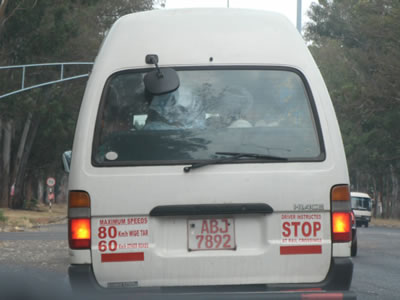Only Zimbabweans Can Make Peaceful Elections Happen
Tuesday, October 26th, 2010 by Bev ClarkKubatana recently received this interesting opinion from Arkmore Kori:
I object to violence because when it appears to do good, the good is only temporary; the evil it does is permanent. (Mohandas Gandhi).
Recent political developments such as the impasse concerning the Government of National Unity with only four months before it expires and the constitutional stalemate have made it fashionable to talk about elections as the only solution to the Zimbabwean crisis.
Many, including Prime Minister Morgan Tsvangirai, believe that with the help of the Southern Africa Development Community (SADC), the African Union (AU) and the United Nations, peaceful elections are possible. Some have even called for either regional or international stakeholders to be deployed in Zimbabwe to safeguard peace during election time.
But our experience shows that SADC and the AU are powerless to stop any political or election violence in Zimbabwe. When they came for the June 2008 run-off, they just ‘observed’ both elections and the accompanying violence with the mild conclusion: ‘elections were not free and fair!’ In fact, it’s a bit ambitious to expect SADC or AU to make Zimbabwe a better place. President Mugabe did not join SADC, but is the only surviving founder of then Frontline States, which changed into the Southern Africa Development Coordination Conference (SADCC) before becoming SADC. This means he has a lot of influence in regional decision-making. At the same time, it’s SADC that advises AU on regional issues, including the Zimbabwean question. This means any decision made on Zimbabwe at either regional or continental level, is indirectly made by Mugabe.
Indeed, except for Operation Gukurahundi of the 1980s, which had an external influence in the substance of North Korea, the political and electoral violence that has been occurring in Zimbabwe, particularly after the year 2000, has been home grown. It has been organised and perpetrated by four community based conglomerates – traditional leaders, war veterans, youth militias and the ‘women’s league’ – that work together.
Against their traditional role of safeguarding our culture, providing food to the needy (remember Zunde Ramambo?), mediating conflicts and preserving peace, traditional leaders have become an extension of the deteriorating ZANU PF structures. Their mandate in Zimbabwe’s internal conflict is ‘selling out’, pin-pointing and compiling lists of ZANU PF opponents for the salaries and numerous benefits, including houses, vehicles and electrification provided at the tax payers’ expense. The youth are responsible for administering the list of opponents and effecting ‘punishment’ according to instructions they receive from war veterans. The ‘women’s league’ provides moral support: ululating, singing and clapping during torture or murder sessions.
The way forward is to destroy this network. The removal of the youth from this violence equation would make elections safer. Real war veterans and traditional leaders are too old to torture or kill. Recently in Bikita the youth refused to be ‘used’ in violence by war veterans. Communities must discourage the youth from cooperating with violence mongers. Instead, the youth should become the defenders of their communities against the ‘intrusion’ and violence, especially caused by ‘imported youth’ from other villages or districts.
Surely, we don’t need SADC, AU, United Nations or international forces to stop us from beating or killing one another?










